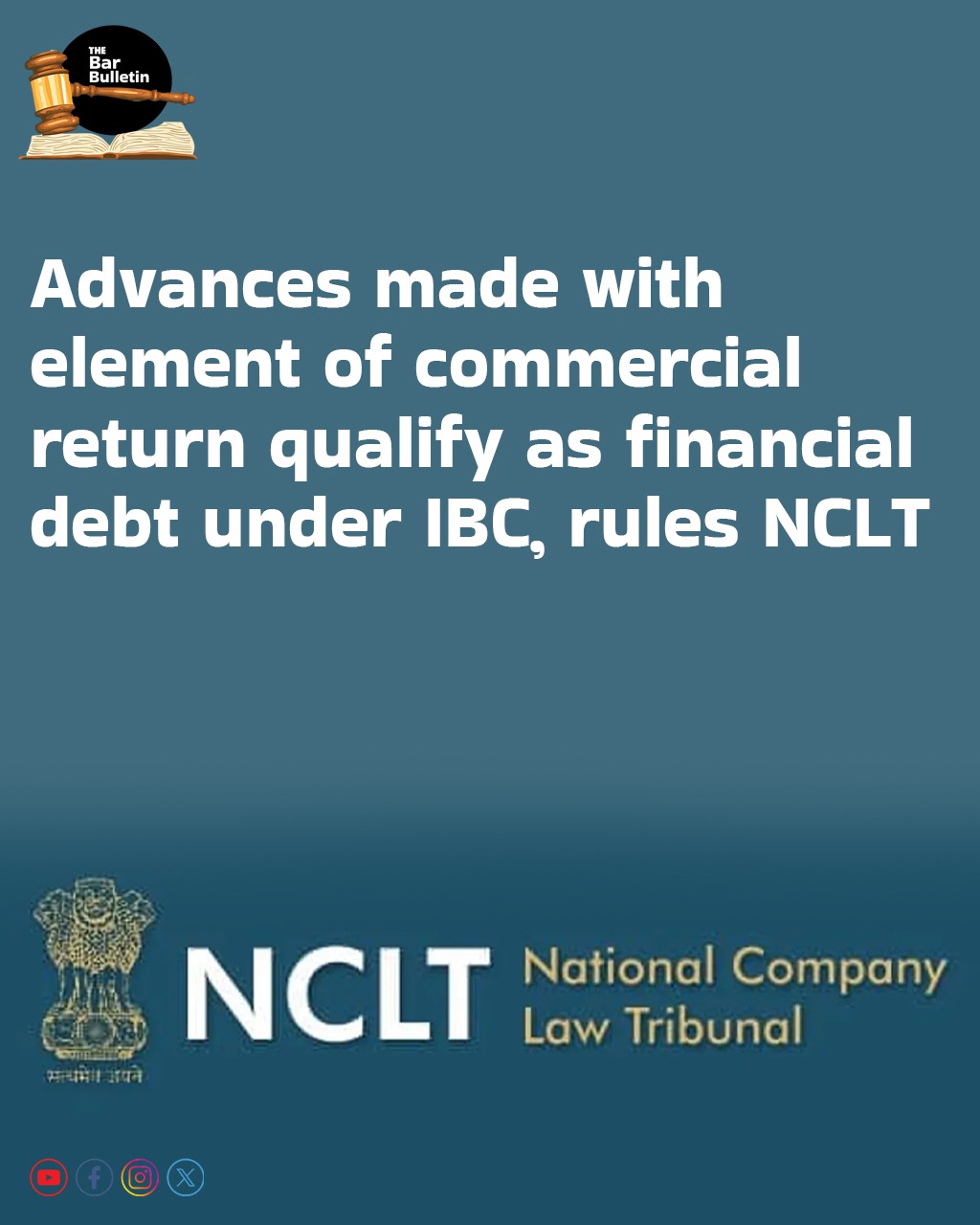The NCLT New Delhi held that investments or advances made with an element of commercial return or benefit satisfy the test of “time value of money” and qualify as financial debt under the Insolvency and Bankruptcy Code, 2016 (IBC). Thus, when the amount disbursed by the Applicant to the Corporate Debtor as an advance against property squarely falls within the ambit of “financial debt” as defined under Section 5(8)(f) of the IBC, as the transaction bears the commercial effect of borrowing, the Adjudicating Authority observed that the Applicant qualifies as a “Financial Creditor” under Section 5(7) of the IBC.
Since the documents establish the existence of a financial debt, as well as the default committed by the Corporate Debtor in repayment thereof, the Division Bench comprising Manni Sankariah Shanmuga Sundaram (Judicial Member) and Atul Chaturvedi (Technical Member) admitted the application filed u/s 7 of the IBC seeking initiation of the CIRP against the Corporate Debtor.
Referring to the submission that neither any loan facility was availed from the financial creditor, nor any agreement was signed, and the advances were made against a property as per the audited accounts, the Bench found that the disbursal is not disputed, and rather it has been acknowledged by the Corporate Debtor in the financial statements. Therefore, referring to the decision of the Supreme Court in the case of Orator Marketing Pvt Ltd. vs Samtex Desinz Pvt Ltd. [Civil Appeal No. 2231 of 2021], the Bench reiterated that even an interest-free advance can qualify as financial debt if the transaction bears a commercial effect of borrowing.
Appearances:
Advocates Anirban Bhattacharya and Rajeev Chowdhary, for the Applicant
Advocates Nishtha and Tushar, for the Respondents
![]()

